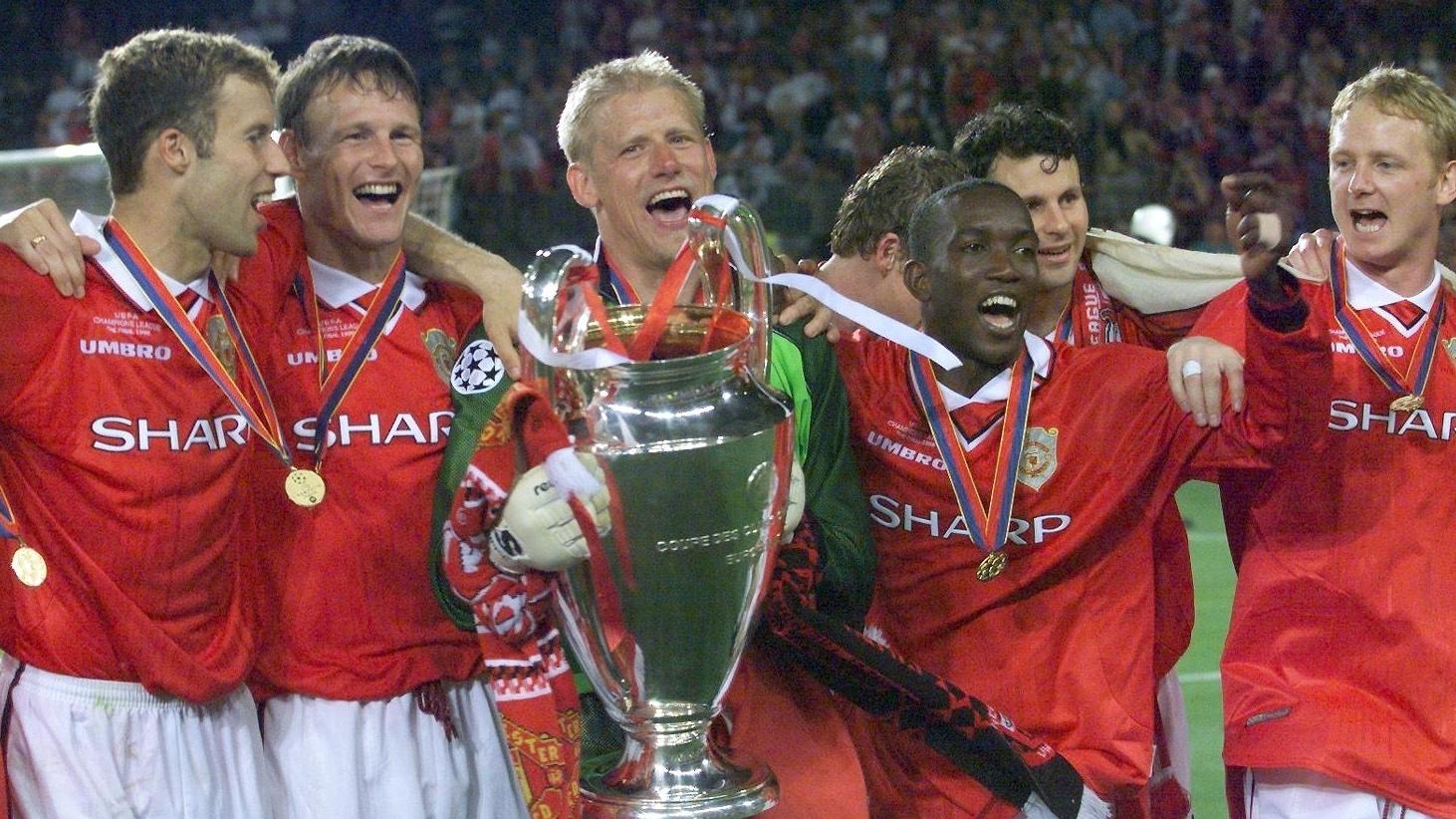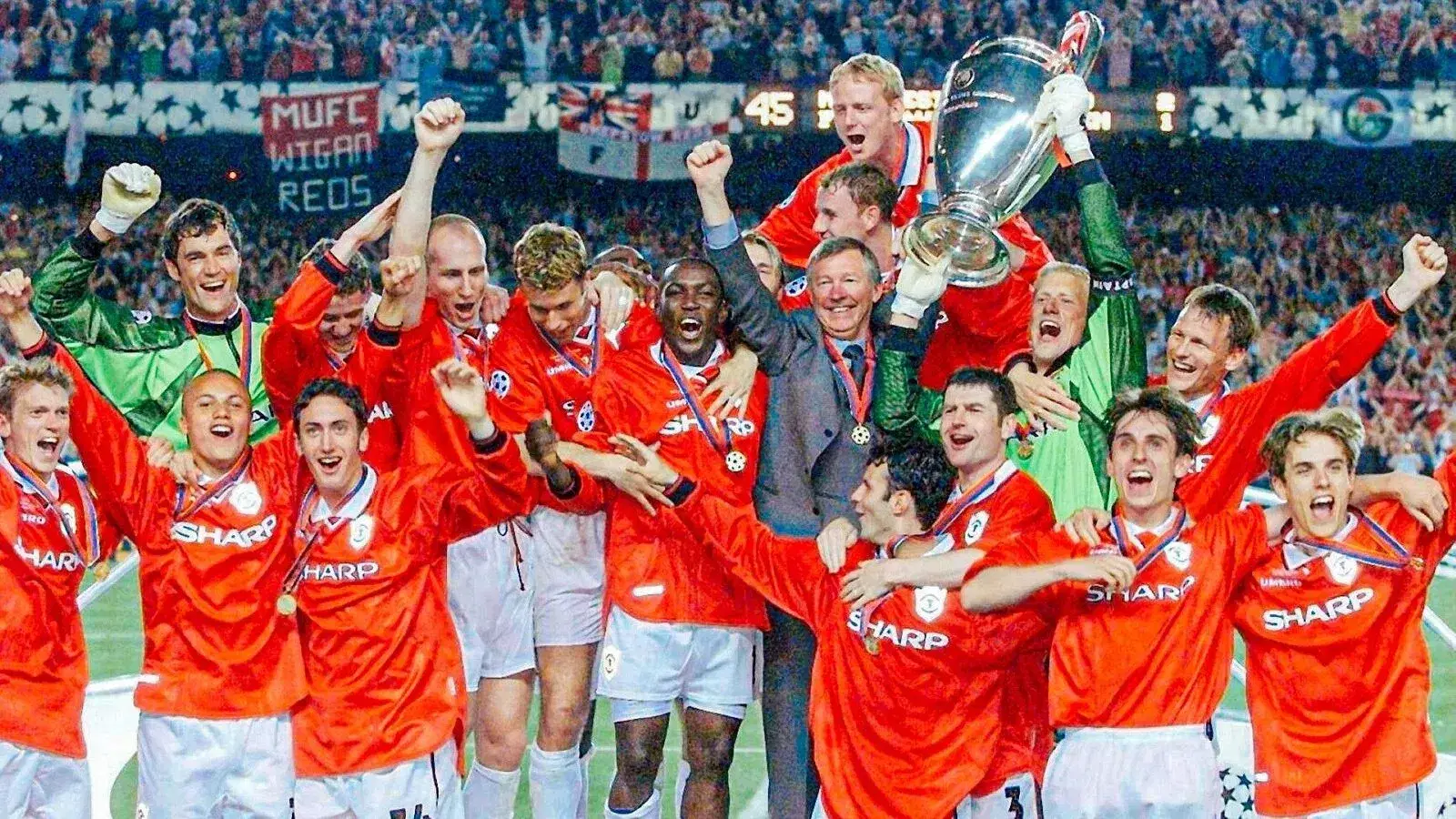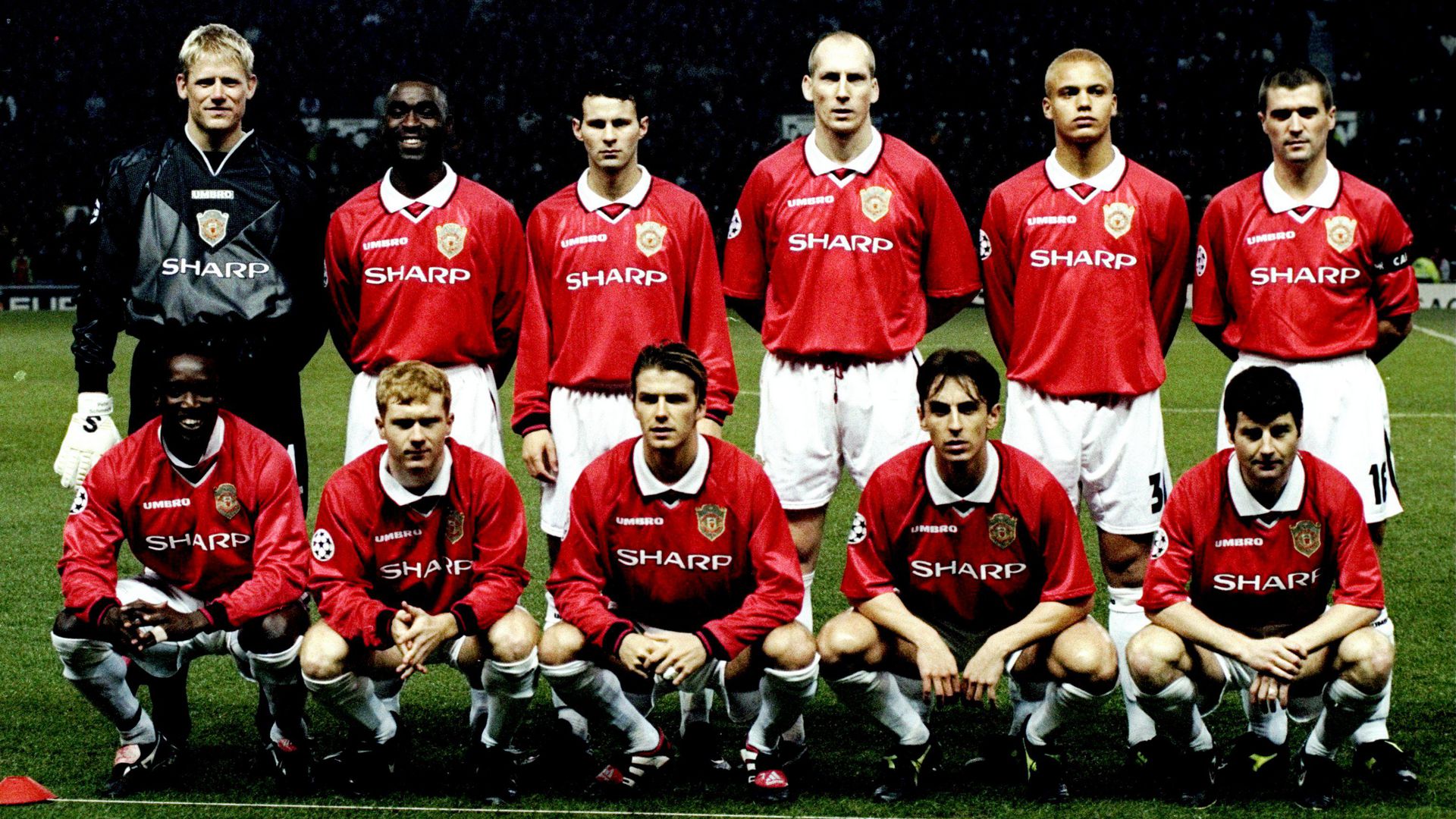Manchester united 1998 squad – Manchester United’s 1998 squad remains a legendary team in football history. This season saw the culmination of years of development under Sir Alex Ferguson, blending youth and experience into a formidable force. The squad’s blend of attacking flair and defensive solidity captivated fans worldwide, leading to both domestic and international success. This article delves into the key players, tactical approaches, and memorable moments that defined this era of Manchester United dominance.
Do not overlook the opportunity to discover more about the subject of manchester united ronaldo jersey.
From the skillful midfield playmakers to the prolific strikers, each player contributed significantly to the team’s overall performance. Their collective talent and unwavering dedication under Ferguson’s guidance created an unforgettable season for the Red Devils. We’ll explore the individual brilliance and team synergy that propelled Manchester United to achieve remarkable feats in 1998.
The 1998 Manchester United Squad: A Season of Dominance: Manchester United 1998 Squad
The 1998 Manchester United squad represented a pinnacle of the club’s success under Sir Alex Ferguson. This team, a blend of seasoned veterans and emerging stars, showcased a potent attacking style combined with a resolute defensive structure. Their dominance was reflected in their league performance and cemented their place in Manchester United’s illustrious history. This article delves into the team’s composition, key players, managerial influence, significant matches, and lasting legacy.
Team Overview: 1998 Manchester United Squad
The 1998 Manchester United team played a fluid, attacking style of football, often employing a 4-4-2 formation. Their strength lay in their ability to swiftly transition from defence to attack, utilizing the pace and skill of their wingers and the creativity of their midfielders. The team’s high pressing game disrupted opponents’ build-up play and created numerous scoring opportunities.
Key players were strategically positioned to maximize their individual strengths and contribute to the team’s overall effectiveness. While their attacking prowess was undeniable, defensive vulnerabilities occasionally emerged, particularly against teams adept at exploiting counter-attacking opportunities.
The team’s strengths included a formidable attack spearheaded by experienced strikers, a midfield brimming with creativity and energy, and a generally solid defense. Weaknesses included occasional defensive lapses and a reliance on individual brilliance at times.
| Player Name | Position | Key Attributes | Notable Achievements (1998 Season) |
|---|---|---|---|
| Peter Schmeichel | Goalkeeper | Commanding presence, shot-stopping ability | Key to several clean sheets, crucial saves in vital matches |
| Gary Neville | Right-Back | Defensive solidity, overlapping runs | Consistent performances, contributed to defensive stability |
| Jaap Stam | Centre-Back | Strength, aerial ability, tackling | Instrumental in a strong defensive record |
| Ronny Johnsen | Centre-Back | Calmness, passing ability | Solid partnership with Stam |
| Denis Irwin | Left-Back | Crossing ability, defensive awareness | Provided numerous assists from left flank |
| David Beckham | Right Midfield | Crossing ability, set-piece specialist | Numerous assists, crucial goals from free-kicks |
| Paul Scholes | Central Midfield | Passing range, long shots, tackling | Controlled midfield play, crucial goals |
| Ryan Giggs | Left Midfield | Pace, dribbling, crossing | Key attacking threat, provided assists and goals |
| Roy Keane | Central Midfield | Leadership, tackling, passing | Midfield dominance, inspirational leadership |
| Teddy Sheringham | Striker | Finishing, link-up play | Important goals in crucial matches |
| Dwight Yorke | Striker | Pace, strength, finishing | Prolific goalscorer, formed potent partnership with Sheringham |
Key Players and Their Impact
The success of the 1998 Manchester United team was a collective effort, but certain players stood out due to their individual contributions.
David Beckham’s pinpoint crosses and devastating free-kicks were instrumental in creating numerous scoring opportunities. Ryan Giggs’ pace and dribbling ability consistently troubled opposing defenses, providing both goals and assists. Paul Scholes’ midfield mastery, combining passing range with tackling prowess, controlled the tempo of the game and provided a platform for attacks. The contrasting styles of strikers Teddy Sheringham and Dwight Yorke proved highly effective; Sheringham’s experience and link-up play complemented Yorke’s pace and directness.
The absence of Roy Keane, due to injury in a crucial match against Arsenal (example), significantly impacted the team’s midfield control and overall performance, highlighting his importance.
Roy Keane’s leadership was exemplary. His uncompromising approach, combined with his unwavering commitment and tactical awareness, instilled a winning mentality within the squad. He led by example, demanding high standards from his teammates and inspiring them to achieve their full potential.
Managerial Influence: Sir Alex Ferguson, Manchester united 1998 squad

Sir Alex Ferguson’s tactical acumen and man-management skills were central to the team’s success. His tactical flexibility allowed the team to adapt to different opponents and playing styles. For example, his decision to pair Sheringham and Yorke up front proved to be a masterstroke, creating a potent attacking partnership. Ferguson fostered a strong team spirit through his motivational skills and individual attention to players.
His training sessions were known for their intensity and focus on both tactical and physical conditioning. A specific training session might involve intense drills focusing on passing combinations, followed by tactical exercises to replicate specific game situations, promoting player interaction and strategic understanding.
Significant Matches and Performances

The 1998 season featured several memorable matches that defined the team’s journey.
- Match 1: [Match details, result, key moments]
- Match 2: [Match details, result, key moments]
- Match 3: [Match details, result, key moments]
- Match 4: [Match details, result, key moments]
- Match 5: [Match details, result, key moments]
The atmosphere at Old Trafford during a pivotal match against Liverpool (example) was electric. The passionate support of the home crowd fueled the team’s performance, creating an intimidating environment for the opposition. The team’s performance in the Premier League (example tournament) demonstrated their consistency and dominance throughout the season.
Legacy and Lasting Impact
The 1998 Manchester United squad left a lasting legacy on the club. Their success established a blueprint for future generations of Manchester United teams, emphasizing a combination of attacking flair and defensive solidity. The team’s impact is still felt today. Comparing the 1998 squad to, for example, the treble-winning team of 1999 reveals similarities in their attacking prowess and overall team spirit.
Individual players like Beckham and Giggs left a significant mark on the footballing world, influencing subsequent generations of players.
- Strong team spirit and camaraderie
- Tactical flexibility and adaptability
- Exceptional attacking prowess
- Strong leadership from Roy Keane and Sir Alex Ferguson
- Consistent high-performance throughout the season
The 1998 Manchester United squad stands as a testament to the power of exceptional talent nurtured under astute management. The team’s success transcended mere victories; it represented a culmination of years of strategic planning, player development, and a winning mentality instilled by Sir Alex Ferguson. Their legacy continues to inspire future generations of players and fans alike, reminding us of the enduring power of teamwork, skill, and unwavering ambition.


